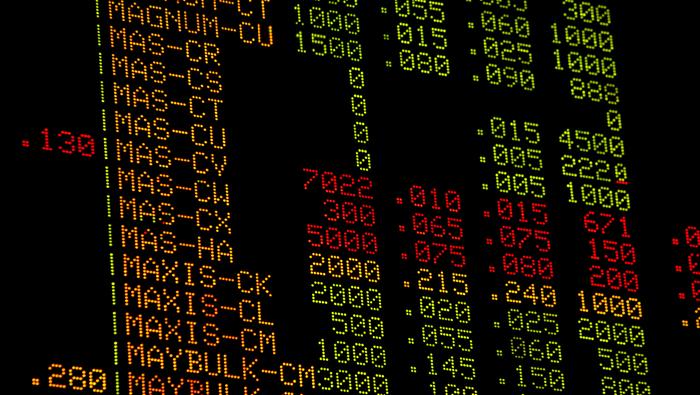
If you've ever considered investing in stock markets, then you might have been curious about stock futures. These are a contract for the purchase or sale at a future date and price. The parties to the contract do not know each other, and the commodity or financial instrument traded is most often an asset. This article will discuss the basics and use of futures contracts to trade stocks.
Trading in stock futures
Stock futures trading has many benefits, but they also come with a greater risk. You could lose more of your initial investment or even more. You must deposit margin with your broker because of the nature and risk of this investment. Your initial margin, also called the "initial marg" is what you will see. Otherwise, the broker may close your trade.
One advantage to trading stock futures is the high liquidity. You can easily trade these instruments, which allows you to increase your leverage. Stock brokerages may only offer you a 2:2 leverage, while futures traders can get 20 times that leverage. This higher risk does not mean a higher profit potential. But, futures trading is a good investment. It is crucial to understand all risks involved in this type trading before you begin.

Trading in single-stock futures
A single stock forward (SSF) refers to a type or futures contract in that the buyer agrees not to pay more than 100 shares of stock by a set date. An SSF buyer does not get voting rights or dividends, as with all contracts. However, a single stock future does confer the right to buy or sell a stock. A single-stock future is a contract between two investors in which the buyer agrees to purchase the stock at a future date, and the seller must deliver the shares on that date.
Trading in single-stock futures contracts is a risky investment. Traders should exercise extreme caution. This type of trading is risky and requires a large amount of capital. If you lose more than you expect, it can be very costly. The ability to create leveraged position makes single stock forwards an appealing option for traders who want diversification. If you have the funds to analyze your investment options, there are some drawbacks to trading single-stock futures.
Trading in stock index futures
The fundamental difference between trading in stock market index futures and trading on open markets is how futures contracts are settled. The cash settlement of the futures contract is the preferred option. The cash amount is the difference between futures price and index value. In other words, a stock index futures contract earns the investor $5,000 in profit. The trader may have a diversified portfolio of securities.
In 1982, the Kansas City Board of Trade introduced the Value Line Index futures contract. In 1982, Chicago Mercantile Exchange (CME), introduced Standard & Poor 500 Futures. This was followed in 1984 by Major Market Index. Stock index futures are becoming more popular among traders and investors. You should trade only in a portfolio that includes diversified stocks. There are many types of stock index futures to choose from.

Margin trading
Stock futures trading requires that you have at least $500 in cash on hand in order to purchase or sell the stock. Margin trading also known by "gearing," or "leveraging" - you must have sufficient cash to buy or sell the stock. This is because your open position will be marked to market every day, and if your position drops below that amount, you'll be forced to liquidate your position.
You must also consider the risks of trading stock futures on margin. Margin could be your best friend and worst enemy. Start with a simulation to learn about margin before you start trading live. In practice it is best to hold positions at least for an hour before market closes. Margin is not mandatory for all trading activities. However, it is important to have a well-tested strategy to protect you money in the case of a losing trade.
FAQ
What is a Stock Exchange exactly?
Stock exchanges are where companies can sell shares of their company. Investors can buy shares of the company through this stock exchange. The market sets the price of the share. It is usually based on how much people are willing to pay for the company.
The stock exchange also helps companies raise money from investors. Investors are willing to invest capital in order for companies to grow. Investors purchase shares in the company. Companies use their funds to fund projects and expand their business.
There are many kinds of shares that can be traded on a stock exchange. Some shares are known as ordinary shares. These shares are the most widely traded. Ordinary shares are traded in the open stock market. The prices of shares are determined by demand and supply.
Preferred shares and debt securities are other types of shares. Preferred shares are given priority over other shares when dividends are paid. The bonds issued by the company are called debt securities and must be repaid.
Why is it important to have marketable securities?
An investment company exists to generate income for investors. It does this through investing its assets in various financial instruments such bonds, stocks, and other securities. These securities have attractive characteristics that investors will find appealing. They can be considered safe due to their full faith and credit.
What security is considered "marketable" is the most important characteristic. This is how easy the security can trade on the stock exchange. A broker charges a commission to purchase securities that are not marketable. Securities cannot be purchased and sold free of charge.
Marketable securities can be government or corporate bonds, preferred and common stocks as well as convertible debentures, convertible and ordinary debentures, unit and real estate trusts, money markets funds and exchange traded funds.
Investment companies invest in these securities because they believe they will generate higher profits than if they invested in more risky securities like equities (shares).
What is a "bond"?
A bond agreement between two people where money is transferred to purchase goods or services. It is also known by the term contract.
A bond is usually written on paper and signed by both parties. This document details the date, amount owed, interest rates, and other pertinent information.
The bond can be used when there are risks, such if a company fails or someone violates a promise.
Sometimes bonds can be used with other types loans like mortgages. This means that the borrower has to pay the loan back plus any interest.
Bonds can also help raise money for major projects, such as the construction of roads and bridges or hospitals.
The bond matures and becomes due. This means that the bond's owner will be paid the principal and any interest.
If a bond does not get paid back, then the lender loses its money.
What is security at the stock market and what does it mean?
Security is an asset which generates income for its owners. Shares in companies are the most popular type of security.
There are many types of securities that a company can issue, such as common stocks, preferred stocks and bonds.
The value of a share depends on the earnings per share (EPS) and dividends the company pays.
A share is a piece of the business that you own and you have a claim to future profits. You will receive money from the business if it pays dividends.
Your shares can be sold at any time.
Statistics
- Ratchet down that 10% if you don't yet have a healthy emergency fund and 10% to 15% of your income funneled into a retirement savings account. (nerdwallet.com)
- For instance, an individual or entity that owns 100,000 shares of a company with one million outstanding shares would have a 10% ownership stake. (investopedia.com)
- US resident who opens a new IBKR Pro individual or joint account receives a 0.25% rate reduction on margin loans. (nerdwallet.com)
- Our focus on Main Street investors reflects the fact that American households own $38 trillion worth of equities, more than 59 percent of the U.S. equity market either directly or indirectly through mutual funds, retirement accounts, and other investments. (sec.gov)
External Links
How To
How to invest in the stock market online
The stock market is one way you can make money investing in stocks. There are many ways you can invest in stock markets, including mutual funds and exchange-traded fonds (ETFs), as well as hedge funds. Your investment strategy will depend on your financial goals, risk tolerance, investment style, knowledge of the market, and overall market knowledge.
You must first understand the workings of the stock market to be successful. This includes understanding the different investment options, their risks and the potential benefits. Once you know what you want out of your investment portfolio, then you can start looking at which type of investment would work best for you.
There are three major types of investments: fixed income, equity, and alternative. Equity refers to ownership shares in companies. Fixed income means debt instruments like bonds and treasury bills. Alternatives include commodities, currencies and real estate. Venture capital is also available. Each option has its pros and cons so you can decide which one suits you best.
There are two main strategies that you can use once you have decided what type of investment you want. One is called "buy and hold." You buy some amount of the security, and you don't sell any of it until you retire or die. The second strategy is called "diversification." Diversification involves buying several securities from different classes. If you buy 10% each of Apple, Microsoft and General Motors, then you can diversify into three different industries. Buying several different kinds of investments gives you greater exposure to multiple sectors of the economy. Because you own another asset in another sector, it helps to protect against losses in that sector.
Risk management is another key aspect when selecting an investment. Risk management can help you control volatility in your portfolio. If you are only willing to take on 1% risk, you can choose a low-risk investment fund. If you are willing and able to accept a 5%-risk, you can choose a more risky fund.
Your money management skills are the last step to becoming a successful investment investor. You need a plan to manage your money in the future. A good plan should include your short-term, medium and long-term goals. Retirement planning is also included. That plan must be followed! Keep your eyes on the big picture and don't let the market fluctuations keep you from sticking to it. Keep to your plan and you will see your wealth grow.